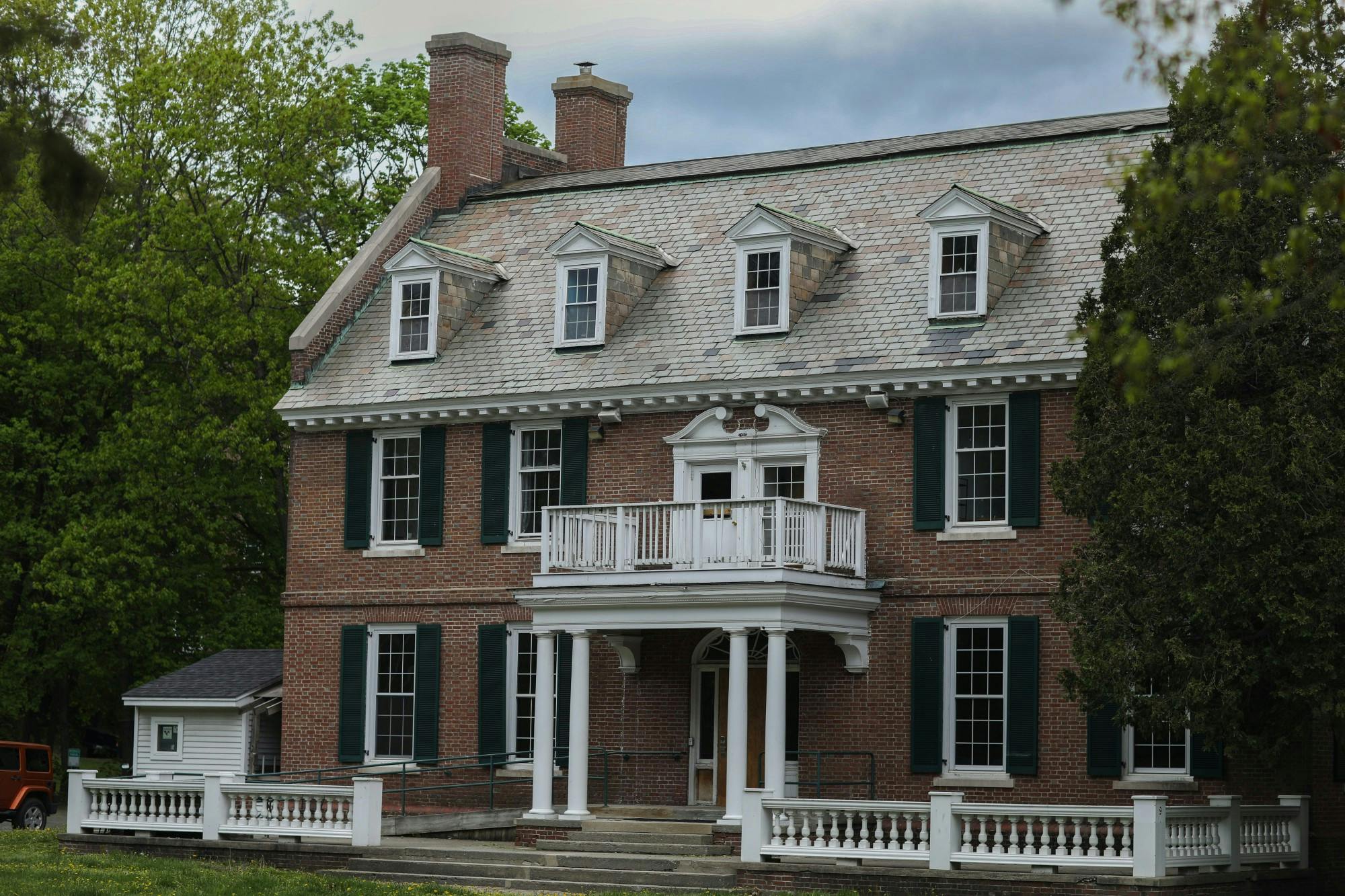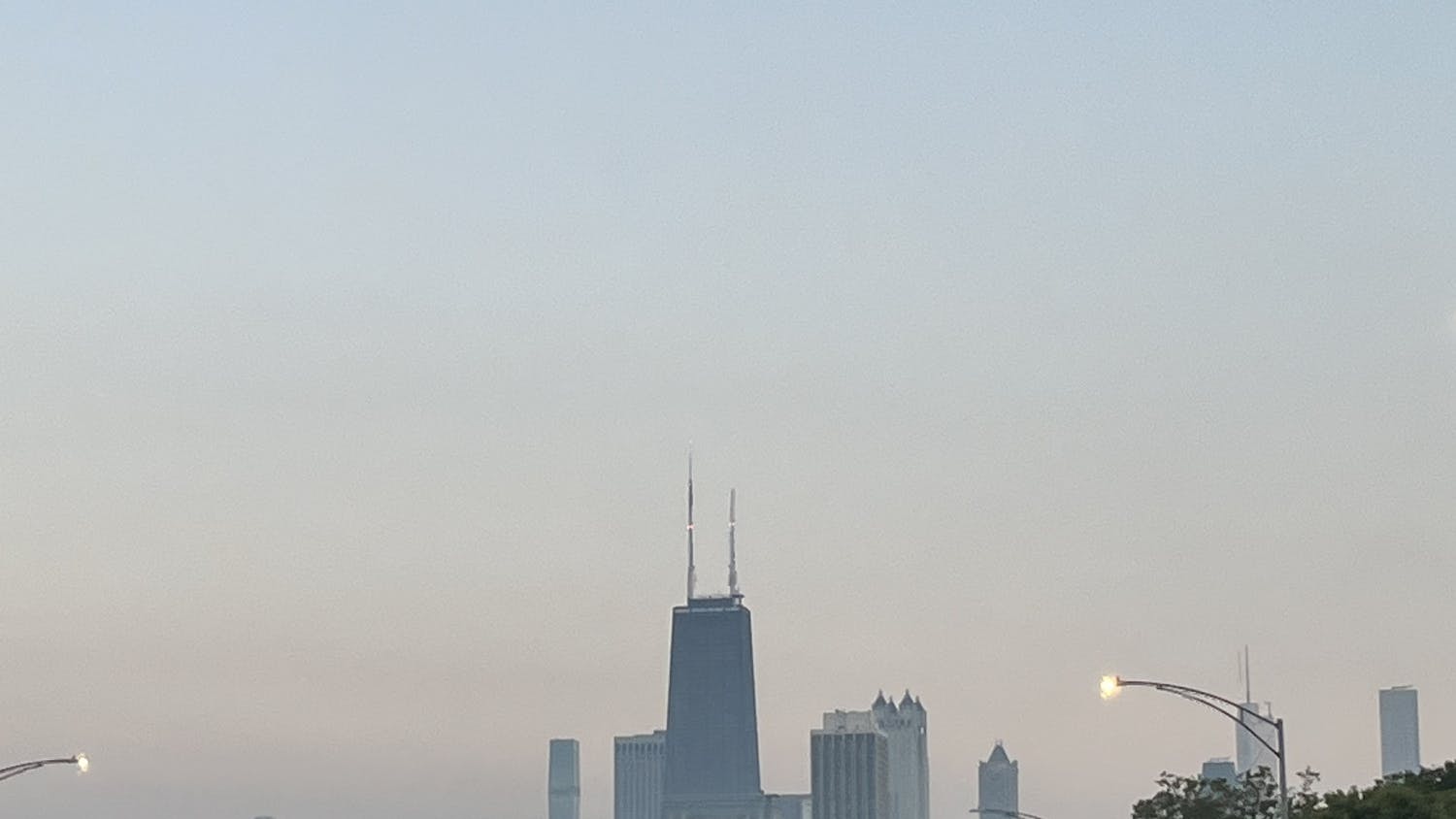This article is featured in the 2022 Green Key special issue.
Not too long ago, students filled the front lawn of Alpha Delta fraternity to celebrate Green Key, the biggest weekend of the spring term. Hundreds of Dartmouth students congregated in front of the house to listen to live music and enjoy the spring weather. The event, called the Alpha Delta lawn party, quickly became a Green Key tradition after its inception in 1979. However, with the derecognition of the fraternity in 2015, the lawn party faded into folklore in Green Key history.
The Origins of the Lawn Party
John Engelman ’68, a former AD brother turned alumni advisor, experienced Green Key before the AD lawn party had solidified itself as tradition. For him, the typical Green Key weekend was defined by the bands themselves.
“There may have been some barbecues and stuff like that going on, but there were no big outdoor parties when I went to Dartmouth,” Engelman said. “Fraternities had a band Friday night, a band on Saturday night and then some fraternities would also have a band on Sunday afternoon, which was generally the biggest, most popular band.”
Nearly 10 years after Engelman graduated, the AD lawn party emerged almost randomly.
“One of the brothers decided to do this outdoor lawn party,” Engelman said. “It was as if the party caught on almost immediately. The weather was hot. The party was happening. It was typical.”
AD hosted bands from major cities such as Boston, Chicago, Philadelphia and Washington, D.C. on the Saturday of Green Key weekend starting in 1979. The music genres that dominated Green Key in the early days of the lawn party, Engelman said, were “soul, R&B, blues and covers of songs by the Temptations, the Miracles, Otis Redding and the Supremes.”
Shaping the Lawn Party Tradition
Despite the spontaneity of the lawn party’s emergence in the late ’70s, the event picked up traction almost immediately.
“It wasn't unusual to have 250, 300, 350 people on the front lawn dancing and drinking and playing pong and so forth,” Engelman said.
The AD lawn party also became the venue of the 30th anniversary of the film “Animal House” by Chris Miller ’63, who was a former AD brother. The band in “Animal House,” Otis Day and the Knights, played at the Saturday lawn party. The party had a “Motown feel” — influenced by soul music and black musicians in Detroit — which never really went away, even as time went on, according to Engelman.
Former AD social chair John Pepper ’91 Tu’97 and recalled looking forward to one band in particular, Downtime, who performed at the lawn Party.
“We brought in a local seven-piece and it was just a really authentic and amazing band,” Pepper said. “The place was littered with people for a bunch of hours.”
Though the afternoon band performance was a defining feature of the lawn party, Pepper remembers the festivities starting “early in the morning.”
“The party stayed pretty much the same throughout my years. If anything, it got better,” Pepper said. “It was super fun and too much drinking. I was the social chair of the house and I remember ordering 36 kegs for a single weekend. It’s not something I’m proud of.”
Engelman remarked on the drinking culture at the lawn party, which he said was one of the consistencies throughout AD’s history.
“When AD started having the lawn parties, the drinking age in New Hampshire was 18,” Engelman said, “When they raised the age to 21, it became increasingly risky to be serving alcohol at these lawn parties. For three or four years of the lawn party, AD wouldn’t be serving any beer or alcohol. It didn’t mean there wasn’t drinking or going out on the front lawn, but we made every effort to limit people’s intake.”
In 1989, Pepper said that the AD lawn turned into a mud bowl, with many brothers partying in a pit of mud. He even kept newspaper clippings recapping the event headlined, “Students turn Alpha Delta fraternity’s lawn into a mud bowl at Green Key festivities.”
“It was raining so hard beforehand,” Pepper said, “The guy who wrote ‘Animal House’ was there and all I remember is just hundreds of people covered with mud. There were also lines of cars going around the house.”
Nirav Kapadia ’03, another former member of AD, said that throughout the party’s history, band selection became more about making the event accessible to everyone on campus than trying to get the most famous act to come to campus.
“It was always about the music, though,” Engelman said. “It made me proud to see what AD was doing. Having this event that was essentially open to everyone on campus and townspeople, too, was really remarkable to me.”
The Lawn Party’s Demise
Green Key’s beloved lawn party ended with the derecognition of the fraternity in 2015. The College had already suspended AD in the past — citing hazing, unregistered parties and underaged drinking for its decision.
“As the alumni advisor, it was a blow,” Engelman said. “Quite frankly, it felt like the College overreacted to the seriousness of the situation.”
Engelman added that she felt that the derecognition of AD was also a message that the College was sending to the entire Greek system. Although he acknowledged that AD made mistakes, he is also hopeful that the fraternity will be able to be recognized again soon.
The AD house is still used today for various alumni events, renting out parking spots and office spaces for different organizations on campus.
“We’re constantly upgrading the condition of the house so that hopefully it can become a safe space to live and socialize in,” Engelman said.
If AD returns, perhaps the lawn party would return as well. For many alumni, such as Pepper, the lawn party was a unifying and exciting spring event.
“The lawn party was really an event that did bring a lot of the Dartmouth community together,” Pepper said. “It definitely wasn’t perfect but it was a time where we all finally embraced spring and listened to some really good music.”
Correction appended (May 17, 11:15 a.m.): A previous version of this article incorrectly stated Chris Miller's graduation year. The article has been updated.




